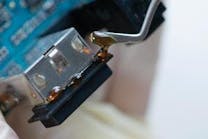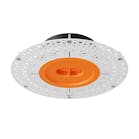New York, NY, April 17, 2020. In response to the COVID-19 pandemic and a wave of seemingly conflicting statements and opinions about the disinfection capabilities and safety of GUV, the Illuminating Engineering Society (IES, est. 1906) has issued a report by their Photobiology Committee explaining germicidal ultraviolet (GUV) disinfection and its potential to safely reduce the transmission of SARS-CoV-2, the virus that causes COVID-19. The authors of the report have provided answers to frequently asked questions about GUV, drawing from expertise from the Centers for Disease Control and Prevention (CDC), the Food and Drug Administration (FDA), Harvard Medical School, the Icahn School of Medicine at Mount Sinai Medical Center, and from germicidal UV manufacturing and research organizations.
Written to help protect healthcare workers and patients, the free download is available on the IES website, [https://www.ies.org/standards/committee-reports/], with an accompanying tutorial video explaining germicidal UV technology, its application, and safety considerations. “The goal is to provide timely and objective information on a proven technology that can reduce the spread of this highly contagious virus,” said Brian Liebel, IES Director of Standards and Research.
Germicidal UV can successfully and safely be deployed to disinfect air in occupied hospital spaces such as waiting rooms, intensive care units and operating rooms. In unoccupied controlled-access environments, germicidal UV can be used as a supplemental measure to disinfect room surfaces, to reduce the spread of healthcare associated infections. Germicidal UV is also being applied for disinfection of some personal protective equipment (PPE) for limited reuse during the pandemic. The FAQs emphasize the need for GUV to be applied correctly and monitored for output and safety, and that training on the operation and maintenance of the systems over time is also important. The IES report addresses these topics and recognizes that additional GUV technologies are in development, including efficacy and safety testing.
The committee report also cautions that ultraviolet disinfecting “wands” or other ultraviolet products for residential use—as they are inadequately proven and unregulated—may pose a safety hazard and are unlikely to provide the protection expected.
“The guidance included in this report should help medical professionals and consumers better understand germicidal UV products, and provides considerations for selecting and employing such technologies,” said Dr. David Sliney, chair of the IES Photobiology Committee. The report was approved through the same careful and rigorous ANSI-approved development process as an IES standard.
About the Illuminating Engineering Society
Established in 1906, the IES is the recognized technical and educational authority on illumination. The strength of the IES is its diversified membership including engineers, architects, designers, educators, students, contractors, distributors, utility personnel, manufacturers, and scientists in 64 countries, all contributing to the mission of the Society: To improve the lighted environment by bringing together those with lighting knowledge and by translating that knowledge into actions that benefit the public. The IES is a 501(c)(3) non-profit professional society.Contact:
Mark Lien, IES Industry Relations Manager





